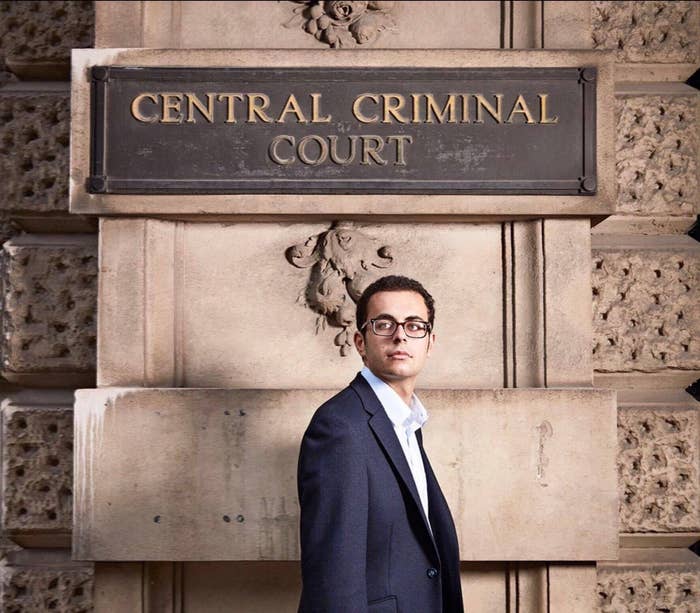
Joshua Browder, the startup CEO who wanted to use an artificial intelligence–powered “robot lawyer” to help a defendant fight a traffic ticket in court, has revealed that he is dropping the plan after being threatened with jail time.
Browder runs DoNotPay, a San Francisco–based DIY legal services startup created to help people get out of parking tickets. In a December tweet, he asked anyone with a speeding ticket hearing coming up to DM him. “We want to build a @donotpay bot that listens to the court hearing via your AirPods and whispers what to say with GPT-3 and LLMs,” he wrote, referring to the tech that powers chatbots like ChatGPT. “We just want to experiment and will pay the ticket, even if you lose!”
Numerous Twitter users expressed skepticism, but Browder told BuzzFeed News that more than 300 people DM’d him. The company eventually ended up picking just one person, who had a $200 speeding ticket. That case, set to be heard Feb. 22, made the cut because the authorities hadn’t provided adequate evidence of the person speeding, according to Browder.
“What the AI was going to do in the courtroom was tell the person to say there wasn’t enough evidence and ask for the ticket to be dismissed,” he said. “We were fairly confident we were going to win.”
Browder told BuzzFeed News that his company was “on the verge of a multistate investigation by members of state bars.” He declined to say which states were investigating him or which court he was planning to try the AI experiment in. He did say that members of the California State Bar had sent the company five letters over the past month.
Good morning! Bad news: after receiving threats from State Bar prosecutors, it seems likely they will put me in jail for 6 months if I follow through with bringing a robot lawyer into a physical courtroom. DoNotPay is postponing our court case and sticking to consumer rights:
“They were asking us detailed questions about our approach,” Browder said. And at least one state bar official, he claimed, pointed out that the CEO could face prosecution and spend up to six months in jail. “I mean, it was getting pretty serious,” he said. “I don’t want to go to jail over an experiment. It was a $200 speeding ticket.”
Since its founding in 2015, DoNotPay has raised more than $28 million, some of it from high-profile Silicon Valley venture capital firms like Andreessen Horowitz, according to Crunchbase. Since 2021, the company has been using a combination of machine learning and automation to make it easier for regular people to challenge bank fees, break leases, and file restraining orders, among other actions.
Browder, 26, seems to revel in attention. On Twitter last month, he showed off a chatbot created by DoNotPay, which argued with a Comcast chat-based customer support representative to negotiate down an internet bill. And earlier this month, he announced that his company would pay $1 million to anyone willing to argue a case before the US Supreme Court by letting a chatbot feed them arguments through a pair of AirPods.
DoNotPay will pay any lawyer or person $1,000,000 with an upcoming case in front of the United States Supreme Court to wear AirPods and let our robot lawyer argue the case by repeating exactly what it says. (1/2)
Browder’s Supreme Court tweet generated eyerolls, and some critics pointed out that DoNotPay’s baseline automated services aren’t good enough to begin with.
As for the traffic court offer, Browder said his mistake was being too public about it. “The problem was that I was tweeting all this out,” he said. “I even tweeted out the exact date [the trial] was happening. Then the lawyers began systematically phoning up every major state bar association to try and stop us. They were really hating on us.”
Federal courts and some state courts do not allow the recording of audio inside the courtroom, something that could have been a problem for Browder’s idea to work, since it relies on his chatbot listening in on live courtroom proceedings to formulate arguments.
So was this all a publicity stunt? “We’re not doing it,” Browder said. “It’s not a publicity stunt, because we’re not doing it.” Ultimately, he said, the scrutiny that he and his company came under was “a distraction.” He said that DoNotPay will stick to what it already does — helping consumers dispute hard-to-cancel subscriptions and reducing cellphone bills.
“This is my mea culpa moment,” he said. “I’m making a lot of powerful enemies, and I realized after reflecting on it that we should just stick to fighting Comcast. I regret being so controversial.”
